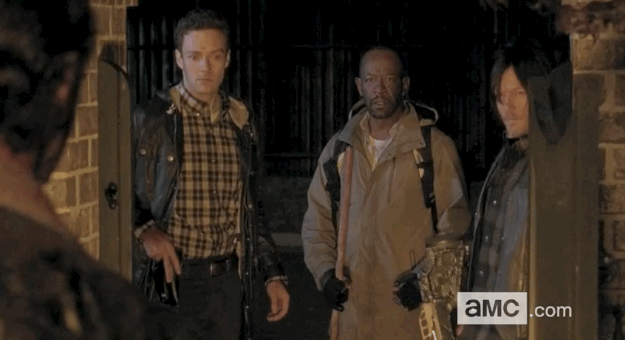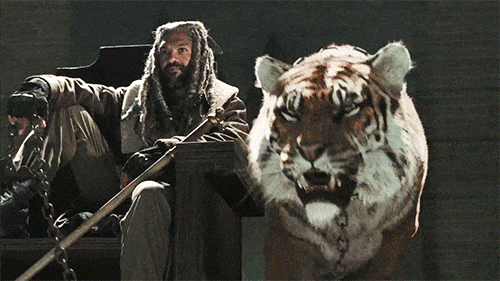The Walking Dead crawled back into the lives of its viewers with its October 23 premiere, pulling in a crowd of 17 million in America, which is a lot, but not a record. What does holds the record then? Well... Season 5 of the show with its groundbreaking 17.9 million watchers.
The smashing success of the series begs the question: why are we still so fascinated with Walkers? Barnes & Nobles labeled the decades from 2003-2013 " the golden age of zombie fiction". Yet, as we approach the beginning of 2017, almost 4 years after the zombie craze has died down, The Walking Dead has experienced only increasingly positive reviews and greater viewership.
Fascination with Robert Kirkman's zombies is the embodiment of the zombie metaphor. The premise of the zombie apocalypse that is proposed accounts for the show's success, a complicated social phenomenon, combining the comfort of fiction, fear of the unknown and promotion of the human spirit into an often action packed and gleefully terrifying storyline.
In this case of Kirkman’s television hit, the zombie metaphor is skillfully utilized to address the modern anxieties of America as well as the hope and promise of reinvention, creating a program that is much more multifaceted than the simple brain dead Walker can communicate.
Whether it be a psycho killer, stalker or even murderous doll, the horror stories of the past had one thing in common; an isolated enemy hunted the group. This is not the case with the zombie narrative. The zombie is the embodiment of the fears of modern America. As James Hughes explains in his article concerning the topic “We're not terrified of the individual anymore. We're terrified of mass breakdown…We're terrified of us. And so we have the zombie flick. It is not about the individual hunting the group; the zombie-flick is about the group hunting the individual."
Turn on any news channel today and you are threatened not with a bank robber or home invader, but nuclear war, terrorism, financial crisis and even worse.
Watching the unfolding of the zombie apocalypse allows audiences to remotely experience what could potentially occur, from the safe distance of an extreme premise. Most likely a virus is not going to ravage the nation causing the dead to rise and consume flesh, so although the show captivates modern fears, there is no real reason to be afraid.
So why The Walking Dead? What sets the show apart and keeps it on the forefront of the American television screen?
Fiction offers an avenue to overcome fear and The Walking Dead does just this. The world of the series does not follow the rules of the pre-zombie civilization, allowing the exploration of social stratifications. One prevalent theme that has carried through all seven seasons is the organization of peoples. Whether it be a couple of RV’s parked in a circle or the once thriving fictional town of Alexandria, when groups form, a natural hierarchy is almost immediately established.
Although the world is not longer recognizable with what it once was, somehow the rules are the same. However, because of the changes instilled by the zombie presence, citizens are allowed more leeway to make their own truth.
This paradox accounts for a large degree of personal clashes between the characters, causing the viewer to question both society as a whole and their position in the system. The show deals with human psychology, social theory, history and government without ever having to directly mention any at all. Although written based on a simple premise, “zombies take over the world”, The Walking Dead seamlessly and necessarily incorporates into the plot the aspects of society that are so powerfully integral to the human experience, they do not even have to be spoken.
Doesn't seem like the show is going to be ending anytime soon. Week after week we turn to AMC to eagerly gobble the plot of each episode.
The happenings of Sheriff Rick Grimes and his peers following the zombie apocalypse serves as both an outlet and a basis of exploration for the viewer. The significance of the zombie metaphor accounts for the smashing success of the series and provides an understanding concerning citizen’s unbroken fascination of Kirkman's zombie culture.

























